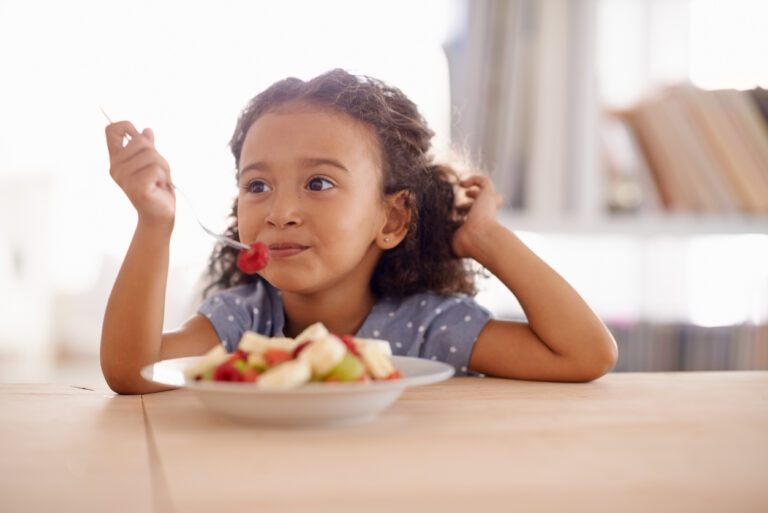by MELISSA FOX
If you feel like you’re feeding your kids the same meal day in, day out, you’re not alone. Could it be possible that we’re doing a grave disservice by offering a constant rotation of chicken nuggets and fries?
According to Dr Ayesha Peets Talbot, co-founder and medical director of Ocean Rock Wellness, there’s a chance that not encouraging them to eat the rainbow could have a significant impact on the way their brain’s function.
“It’s right up there with a loving, healthy environment and good sleep,” she said. “It’s so important that even a mother’s diet during pregnancy can influence a child’s mental development.”
Brain-supporting foods full of nutrients such as tuna, seeds, lean beef and poultry, dark, leafy greens, legumes, whole grains, fruits and even dark chocolate significantly improve our optimal brain health.
On the other hand, ‘troublesome foods’ can have an inverse effect on behaviour, focus and academic performance, and can result in anxiety, depression, oppositional defiance and moodiness.
“Troublesome foods can overload the body’s toxic load or illicit inflammation, and therefore promote disease,” Dr Peets Talbot explained, pointing to a list of foods like those high in trans fats, sugar, refined grains and chemicals that, if not consumed in moderation, can be considered common culprits for gut issues and brain inflammation.
“It is this inflamed brain that can result in issues like anxiety, hyperactivity and other behavioural challenges,” she said.
With most parents doing their best to put a healthy meal in front of their children regularly, there is still some truth to those memes: coming up with a different dish three times a day, seven days a week, can be monotonous. Throw a picky toddler into the mix and things get downright unimaginative.
When dinner time becomes a battle, falling back on familiar favourites is the easy option, but it doesn’t mean your children are missing out on the essential building blocks needed to fuel their bodies and minds.
In children, symptoms of food intolerance or poor diet can present as hives, eczema, fine bumps or areas of changed pigmentation on the skin, and behavioural changes like moodiness in older children or tantrums in younger children, hyperactivity, bed wetting, anxiety, depression or tics.
“Gastrointestinal issues like a general tummy ache or more specific symptoms like gas, reflux, bloating, bowel movement changes that can range from loose stools to constipation,” added Dr Peets Talbot. “Other common clues can be headaches, weight gain and joint pain after exposures.”
Parents with picky eaters know all too well the frustration behind attempting creativity in the kitchen, but introducing ‘new’ doesn’t have to be some big event.
“Children are usually a reflection of their parents and their diet is no exception. They tend to eat what we eat and react to new foods the way we do,” Dr Peets Talbot said. “The best thing we can do to improve our children’s diet is to improve ours and share with them the reason behind the journey. Remember that it can take up to 15 tries before a child accepts a new food. Don’t give up!”
The less fuss we make, the more likely we will improve how our children eat. Creating a routine around meal prep and involving your kids can also go a long way to help increase their interest in trying new things.
“It’s best to keep lunches to something kids are used to, especially during the school year,” she said. “The weekends however, are great times to explore new foods and interest in healthy meals. The best way to do that is by allowing participation in meal prep.”

